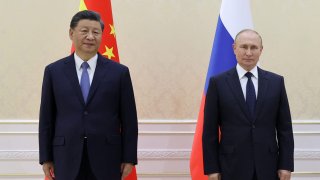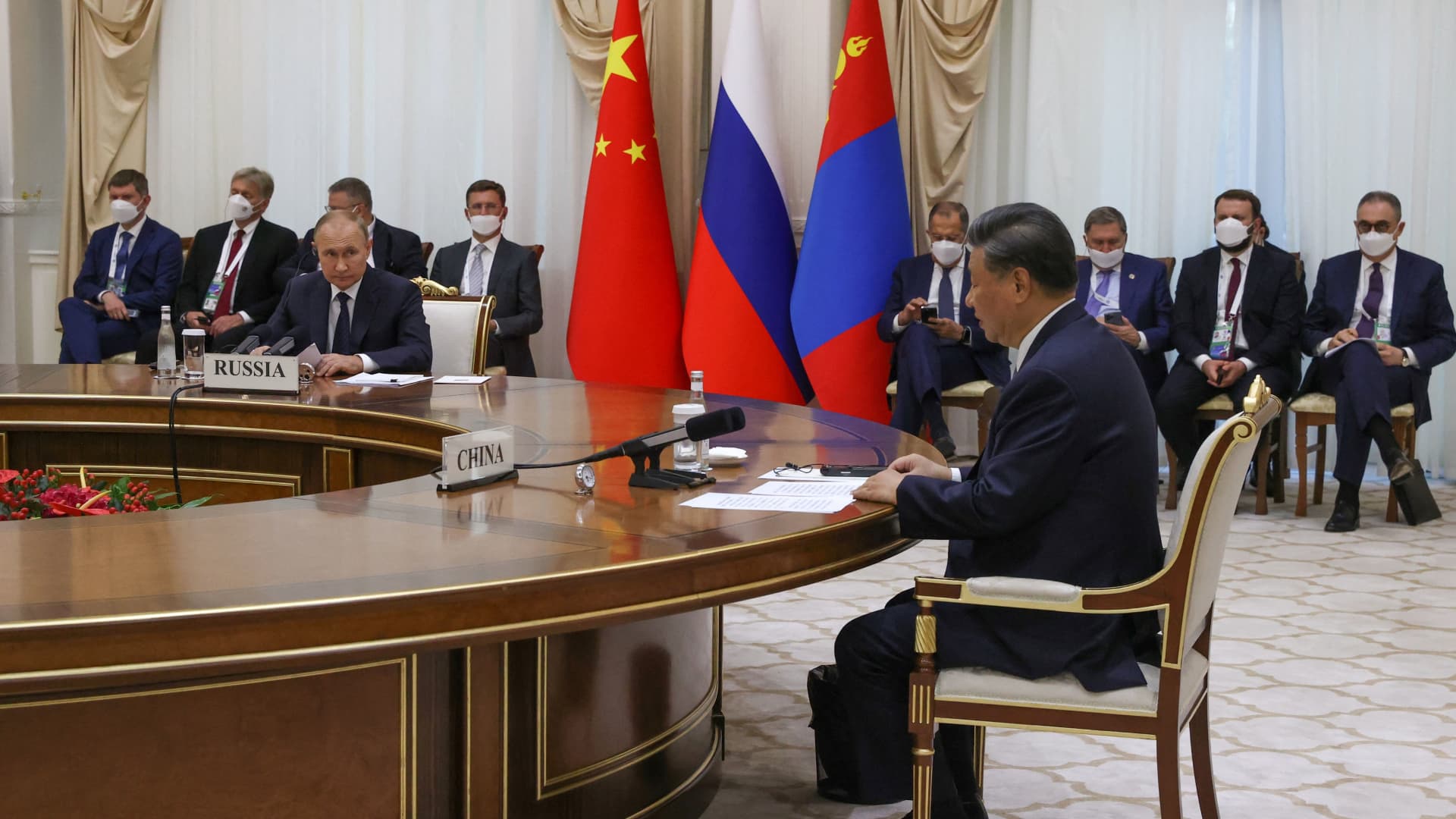
- China holds the "dominant position" in its relationship with Russia, and President Xi Jinping is no longer prepared for Moscow to "act as it pleases," according to one political analyst.
- "It's an unequal partnership, and China is in the dominant position in the relationship," said Matthew Sussex, an associate professor from Griffith University in Australia.
- The strategic partnership between China and Russia will continue to exist to counter "Western hegemony," said an associate professor at University of Nevada.
China holds the "dominant position" in its relationship with Russia, and President Xi Jinping is no longer prepared for Moscow to "act as it pleases," according to one political analyst.
"It's an unequal partnership, and China is in the dominant position in the relationship," said Matthew Sussex, an associate professor from Griffith University in Australia. He attributed it to the fact that Russia needs China more than China needs Russia.
Get Connecticut local news, weather forecasts and entertainment stories to your inbox. Sign up for NBC Connecticut newsletters.
The comments come a day after the Chinese leader met Russian President Vladimir Putin in Uzbekistan, on the sidelines of the Shanghai Cooperation Organisation in Samarkand. It was the two leaders' first in-person meeting since Russia launched an unprovoked war on neighboring Ukraine in February.
During the meeting, Xi expressed that Beijing was "ready to work with Russia" so that they can support each other's "core interests," according to Chinese state-backed media Xinhua, which listed the areas of cooperation as trade, agriculture and connectivity.
But Sussex pointed out that a China-Russia partnership may not necessarily be on equal footing.

While China has been buying up cheap oil from Russia, Beijing has consistently denied providing any weapons to Moscow.
Money Report
Sussex explained this might be an indication that Beijing has "some real concerns, and real annoyance" with Russia about the conduct of the conflict.
The conflict has so far claimed about 34,000 lives, according to an August report by the New York Times which said Ukraine lost 9,000 troops while Russia's lost an estimated 25,000 lives in the battlefield. Moscow has repeatedly referred to the attack on Ukraine as a "special operation."
Still, the strategic partnership between China and Russia will continue to exist, said associate professor at University of Nevada, Xiaoyu Pu.
He said the alliance is such that both powers can counter "Western hegemony," a term used to describe the West's dominance — politically, socially or economically — in the global community.
"China needs Russia's strategic sort of partnership to counterbalance against… Western hegemony, so China and Russia will continue to trade to maintain some sort of normal economic relationship," he said.
'Symbolic support'
Russia and China held a weeklong joint military exercise in the Sea of Japan with other troops such as India, Laos and Mongolia last month. Both countries have held joint drills in recent years, including in Russia's Far East.
However, Pu pointed out that "the relationship has limitations."
"China will not provide any military support… to Russia, so I think China has its own reservations about Russia's war," he said. "This Russia-China partnership is not a form of military alliance. It's more... [a] symbolic support."
In their last face-to-face meeting in February, Xi and Putin sealed a "no limits" partnership. They pledged diplomatic and political support to each other, and agreed to have no "forbidden" areas of cooperation.
Similarly, Sussex pointed out the inhibitions that Beijing may have, as seen by China's unwillingness to provide Russia with arms.
Since the start of September, Ukraine has recaptured more than 6,000 square kilometers of territory from Russian control, including the second largest city Kharkiv, its president said.
"I think Xi will probably stay on the sidelines for the foreseeable future," Sussex said. "And yet this is putting significant hurt on Russians in prosecuting the war."
"The 'no limits' partnership does have limits, and increasingly, those limits are set by Beijing rather than Moscow," said Sussex. "China is no longer prepared for Russia to act as its pleases."






